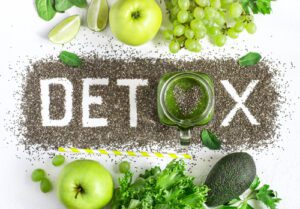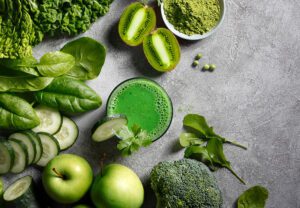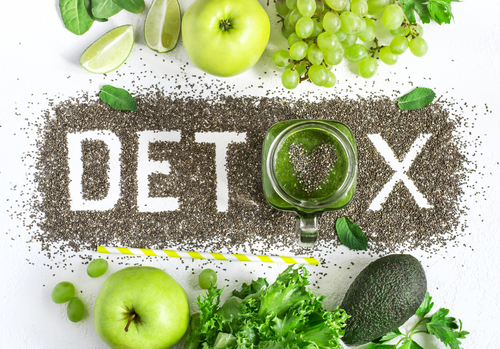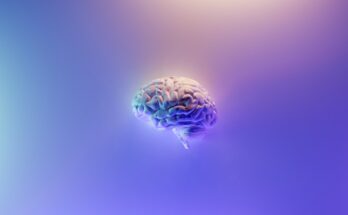DETOXING: ITS USES AND EFFECTS
Detox diets are more well-liked than ever. These eating plans promise to purge your body of dangerous poisons and detoxify your blood. But it’s not exactly obvious how they accomplish this, what specific compounds they’re meant to get rid of, or even if they even function. In this article, the viewers can find the uses and effects of detoxing.

WHAT IT IS?
Generally speaking, detox diets are short-term dietary therapies that aim to rid your body of toxins.
A traditional detox diet consists of a fasting phase followed by a strict diet of fruit, vegetables, fruit juices, and water. Herbs, teas, vitamins, colon cleanses, and enemas are occasionally used to detox regimens.
According to this,
- Fasting will relax your organs.
- Activate your liver so it can eliminate toxins.
- Encourage the body to eliminate toxins through faeces, urine, and sweat
- Boost blood flow
- Give your body wholesome foods to eat
Because of the possibility of exposure to hazardous chemicals in your surroundings or diet, detox therapies are frequently advised. Pollutants, man-made chemicals, heavy metals, and other dangerous substances fall under this category. These diets are also promoted as remedies for a number of medical conditions, including as obesity, digestive disorders, autoimmune illnesses, inflammation, allergies, bloating, and chronic fatigue.

IMAGE CREDITS: https://www.news18.com/
WAYS TO DETOX
You can follow a detox diet in a variety of ways, from complete food restrictions to simple meal swaps.
A minimum of one of the following is usually included in detox diets:
- 1-3 days of fasting.
- Consuming smoothies, water, tea, and fresh juices of fruits and vegetables.
- Only consuming specific beverages, such as lemon juice or salty water.
- Avoiding substances, allergies, and foods high in heavy metals.
- Using herbal or dietary supplements.
- Avoiding all allergen-containing food, followed by a gradual introduction.
- Making use of laxatives, colon cleanses, or enemas.
- Routinely exercising
- Removing all traces of processed sugar, coffee, alcohol, and cigarettes.
However, the methods or ways can vary.
EFFECTS OF DETOXING
During and after detox diets, several people claim to feel more alert and energized. It’s possible that your diet’s elimination of processed foods, alcohol, and other harmful substances is all it took to enhance your health. You may now be receiving vitamins and minerals that you previously lacked. However, a lot of folks also mention feeling really ill while going through the detox process.
DETOXING AND WEIGHT LOSS
How detox diets affect weight loss has been the subject of very few scientific studies.
Despite the fact that some people may lose a lot of weight quickly, this effect appears to be caused more by the loss of fluid and carbohydrate storage than fat. Once you stop the detox, this weight normally returns rapidly.
One study looked at the lemon detox diet, which for seven days restricts you to a combination of organic maple or palm syrup and lemon juice. The participants were overweight Korean women.
The body weight, BMI, body fat percentage, waist-to-hip ratio, waist circumference, inflammatory markers, insulin resistance, and leptin levels were all dramatically lowered by this diet.
DETOX DIETS, FASTS AND STRESS
A variety of detox diets may have effects resembling those of intermittent or short-term fasting.
Some individuals may see improvements in leptin and insulin sensitivity after a brief fast.
These results do not, however, apply to everybody. Studies on women have found that both a 48-hour fast and a 3-week period of calorie restriction may raise your levels of stress hormones.
In addition, because they require overcoming temptations and experiencing intense hunger, crash diets can be stressful.

IMAGE CREDITS: https://health.clevelandclinic.org/
DETOXING: SIDE EFFECTS
Significant Calorie Restriction
A number of detox diets advocate fasting or extreme calorie restriction. Fatigue, anger, and poor breath might come from intermittent fasting and low calorie consumption.
Long-term fasting can lead to deficits in nutrients, including vitamins and minerals, as well as electrolyte imbalance and even death.
Dehydration, cramping, bloating, nausea, and vomiting can also result from colon cleansing techniques, which are occasionally advised during detoxes.
Overdosing
There is a chance of overdosing on vitamins, laxatives, diuretics, and even water when following some detox diets. Many detox foods and supplements could not have any scientific foundation because there is a lack of regulation and oversight in the detox business.
The ingredient lists on detox products may, in the worst situations, be false. This could raise your risk of overdosing and increase the possibility of serious or even deadly consequences.
USEFUL LINKS:
- https://www.healthline.com/nutrition/how-to-detox-your-body
- https://www.healthline.com/nutrition/detox-diets-101
- https://www.webmd.com/diet/a-z/detox-diets
To know best fitness apps to track your workout, visit: https://theperfectblogger.com/best-fitness-apps-to-track-your-daily-workout/
To know about yoga for beginners, click: https://theperfectblogger.com/five-easy-yoga-poses-for-beginners/
For more updates on health and fitness.





5 Comments on “DETOXING: ITS USES AND EFFECTS.”